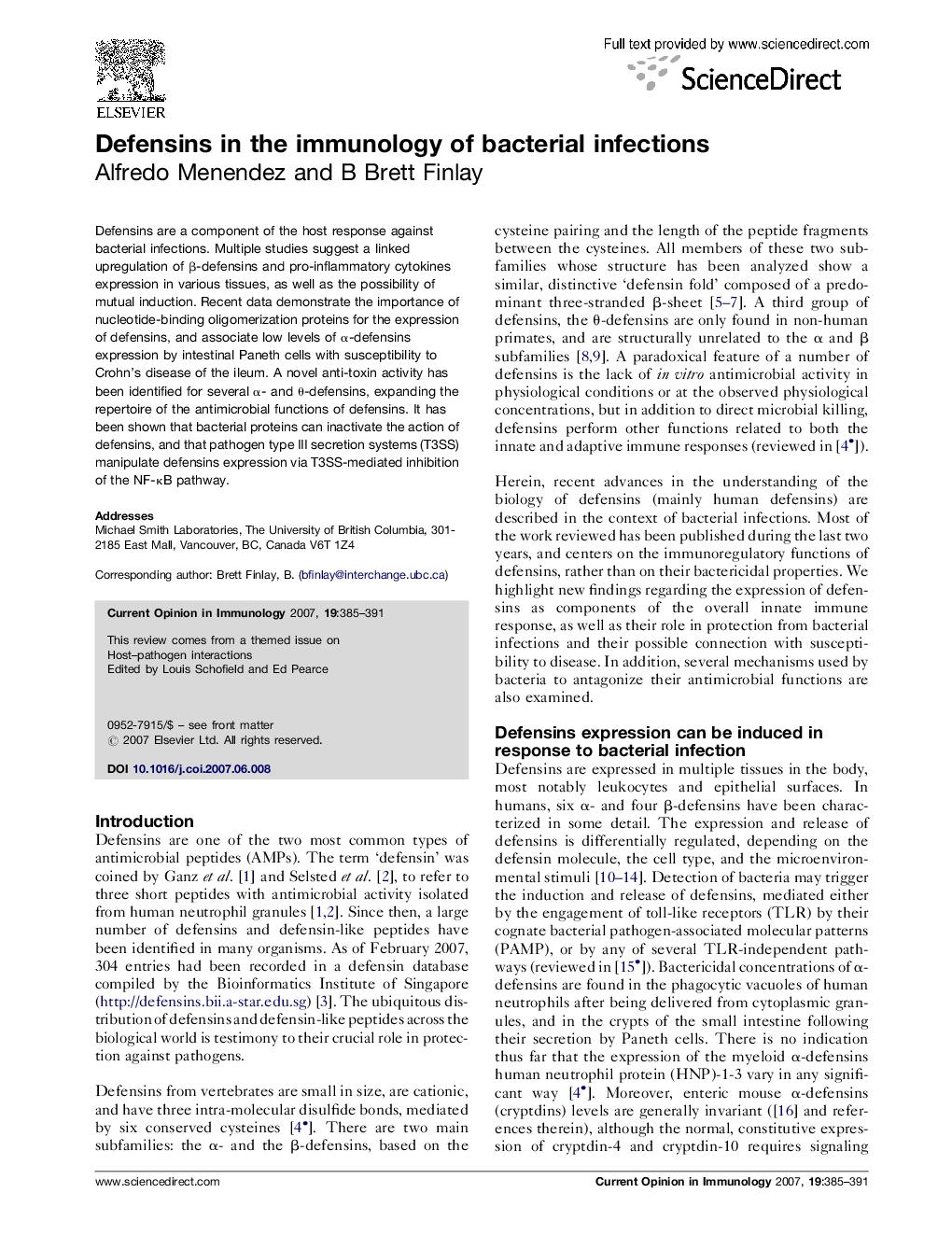| کد مقاله | کد نشریه | سال انتشار | مقاله انگلیسی | نسخه تمام متن |
|---|---|---|---|---|
| 3346513 | 1215792 | 2007 | 7 صفحه PDF | دانلود رایگان |

Defensins are a component of the host response against bacterial infections. Multiple studies suggest a linked upregulation of β-defensins and pro-inflammatory cytokines expression in various tissues, as well as the possibility of mutual induction. Recent data demonstrate the importance of nucleotide-binding oligomerization proteins for the expression of defensins, and associate low levels of α-defensins expression by intestinal Paneth cells with susceptibility to Crohn's disease of the ileum. A novel anti-toxin activity has been identified for several α- and θ-defensins, expanding the repertoire of the antimicrobial functions of defensins. It has been shown that bacterial proteins can inactivate the action of defensins, and that pathogen type III secretion systems (T3SS) manipulate defensins expression via T3SS-mediated inhibition of the NF-κB pathway.
Journal: Current Opinion in Immunology - Volume 19, Issue 4, August 2007, Pages 385–391